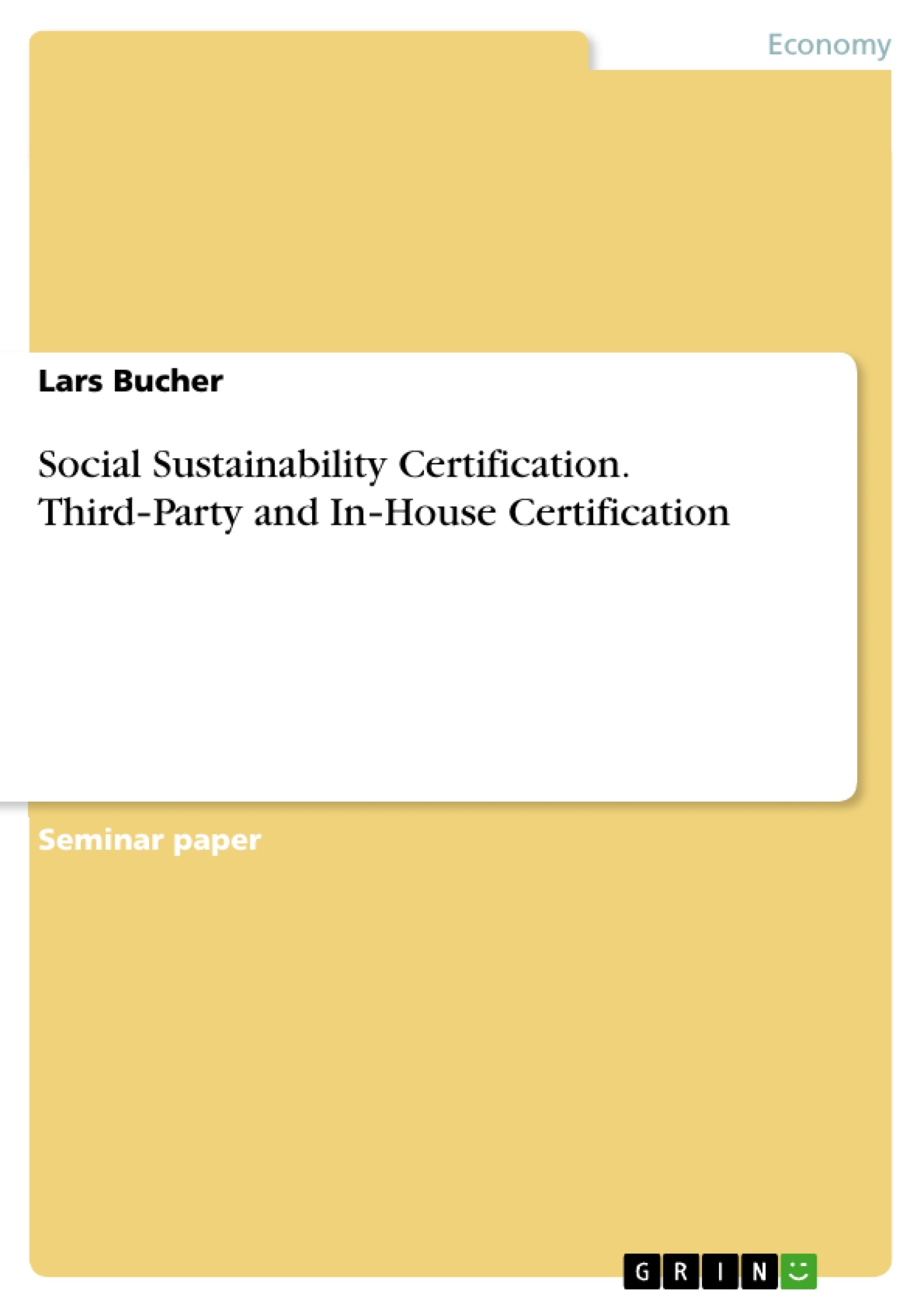Social sustainability certificates are used to credibly demonstrate sustainable and responsible approaches to the environment and employees in the supply chain. This is necessary because many consumer goods or raw materials are grown and manufactured in developing countries before being sold to other markets. Developing countries often do not have comparable laws on environmental and worker protection.
Likewise, there are hardly any measures that can counteract social inequality, child labor and systematic poverty. Small-scale individual farmers, as in the case of cocoa or coffee cultivation, work hard every day and can hardly build up reserves due to the price pressure of the world market and large corporations. Even school education for their children is not affordable. While the demand for goods such as cocoa and coffee continues to rise worldwide, it will still hardly be possible for the next generation to have a higher income and a better future.
These conditions of cultivation and competition create difficult living conditions and threaten at the same time the adequate supply of the coveted raw materials for the industry, for example when, in the case of cocoa, the younger generation does not want to take over the farms. This essay aims to elaborate on the question if external certification is the right tool to improve the situation in the industry or if buying companies should try to promote their own standards and mechanisms.
Table of Contents
- THE NEED FOR SOCIAL SUSTAINABILITY.
- HOW THIRD-PARTY CERTIFICATION WORKS
- CRITIQUE ON THIRD-PARTY CERTIFICATION.
- IS IN-HOUSE CERTIFICATION BETTER THAN THAT?
- CONCLUSION.
Objectives and Key Themes
This essay aims to analyze the effectiveness of third-party certification in promoting social sustainability within supply chains, specifically focusing on the coffee and cocoa industries. The essay explores whether external certification, exemplified by Fairtrade, is an effective tool for improving working conditions and empowering farmers, or if companies should prioritize their own in-house standards and mechanisms.
- The need for social sustainability in global supply chains, particularly in developing countries.
- The role of third-party certification in promoting fair labor practices, environmental protection, and community development.
- Criticisms of third-party certification, including concerns about transparency, effectiveness, and potential unintended consequences.
- The potential benefits and drawbacks of in-house certification compared to external certification.
- The challenges of achieving social sustainability in the context of global market dynamics and power imbalances.
Chapter Summaries
- THE NEED FOR SOCIAL SUSTAINABILITY. This section establishes the context for the discussion by highlighting the social and environmental challenges faced by farmers in developing countries, particularly within the cocoa and coffee industries. It emphasizes the need for responsible and sustainable practices within global supply chains to address issues like poverty, child labor, and environmental degradation.
- HOW THIRD-PARTY CERTIFICATION WORKS. This section provides an overview of third-party certification, using Fairtrade as a prominent example. It explains how certification works, outlining the standards and criteria that companies must meet to receive certification. It also highlights the benefits of certification for both consumers and producers.
- CRITIQUE ON THIRD-PARTY CERTIFICATION. This section presents critical arguments regarding the effectiveness and limitations of third-party certification. It raises concerns about transparency, the possibility of manipulation, and potential unintended consequences, citing examples like increased production without quality improvements and the concentration of benefits among larger farmers.
Keywords
This essay explores the role of social sustainability certification, particularly Fairtrade, in addressing challenges in global supply chains. It examines the effectiveness of third-party certification in promoting fair labor practices, environmental protection, and community development. Key themes include social responsibility, ethical sourcing, transparency, consumer demand, and power imbalances within the supply chain.
Frequently Asked Questions
What is the purpose of social sustainability certificates?
They are used to demonstrate that products (like cocoa or coffee) are produced under fair working conditions and with responsible environmental practices in developing countries.
How does Fairtrade certification work?
Fairtrade sets specific social, economic, and environmental standards that producers must meet to receive a fair price and a premium for community development projects.
What are the criticisms of third-party certifications?
Criticisms include lack of transparency, potential for manipulation, and the concern that benefits often favor larger farmers over small-scale individual cultivators.
Is in-house certification better than third-party?
In-house standards allow companies more control, but they may lack the independent credibility and standardized transparency that external third-party certifications provide.
Why is social sustainability crucial in the cocoa industry?
Issues like child labor, systematic poverty, and price pressure threaten the future of cocoa farming as younger generations may abandon the farms due to poor living conditions.
- Citar trabajo
- Lars Bucher (Autor), 2021, Social Sustainability Certification. Third‐Party and In‐House Certification, Múnich, GRIN Verlag, https://www.grin.com/document/1191417



